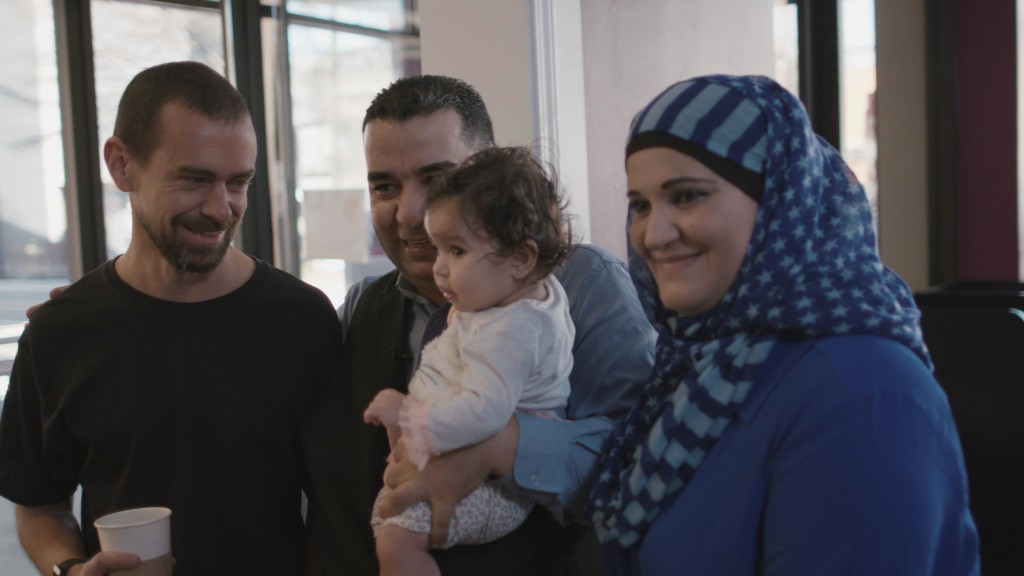
Last weekend, after President Trump announced an executive order banning foreign nationals from seven Muslim-majority countries from entering the United States, Senait Admassu's seven-year-old nephew made a startling announcement. "I'm not American. I will never be American," he said. "I wasn't born here."
Admassu won't reveal her nephew's name. His family, who moved to Southern California from Ethiopia five years ago as legal immigrants, is too afraid for their safety.
That fear, said Admassu, comes from the psychological trauma many black, brown, refugee and Muslim children have felt since the election in November.
"They've been bullied, they've been called names, they've been told 'you're Muslim, go back to your country, you don't speak English,'" said Admassu, who is president of the African Communities Public Health Coalition in Los Angeles, an organization that provides mental health services. She tried to tell her nephew that he belonged in the U.S. to little avail. "He's afraid that one day he might go back."
Related: Women of color on what's at stake under President Trump
Trump's campaign rhetoric about "extreme vetting" of Muslims and building a wall on the Mexico-U.S. border has painted those seeking entry into the United States as a menace of sorts: men and women who could be terrorists, rapists, criminals or people who are stealing American jobs.
That rhetoric is now becoming policy -- and children of color are paying attention.
Since he took office on January 20, Trump has issued executive orders on cutting off federal funding for sanctuary cities, publicly tracking crimes committed by undocumented immigrants, building a wall, preventing refugees from entering the country for 120 days and banning immigrants from seven Muslim-majority nations for three months.
Admassu described the children she knows in Los Angeles as being afraid for their parent's safety when they go to the mosque or fearful that their parents will be deported.
In New York City, black and brown students are also concerned about the political climate in Washington and the tensions between racial and ethnic groups. "When I was 11, this isn't what I was thinking about," said Deb Levy, the director of communications and marketing at the non-profit ExpandeED Schools. "They are internalizing the climate in a big way."
The Monday after the executive order announcing the travel ban, New York's Department of Education reminded families that they do not ask about or keep records on a student or family member's immigration status. In a statement, officials said they would also ensure that schools are "free from harassment, bullying, and discrimination."
Related: Trump's immigration ban triggers panic at universities
The Trump administration has also been criticized for receiving support from white nationalist groups and giving chief strategist Steve Bannon, the former executive chairman at right wing media outlet Breitbart, a seat on the National Security Council. Bannon has been praised by white nationalists, who see him as sympathetic to their agenda. Bannon himself insists he's not a white nationalist, describing himself as an "economic nationalist."
"People feel emboldened by this kind of white supremacy in the White House," said Katie Hamm, the vice president of early childhood policy at the Center for American Progress, a left leaning think tank.
After the election, researchers from the Southern Poverty Law Center found that 80% of educators they surveyed reported "heightened anxiety on the part of marginalized students, including immigrants, Muslims, African Americans and LGBT students." While 40% said they heard derogatory language directed at these students.
The long-term effects of this racial, ethnic and religious discrimination can be debilitating, experts said.
David Palmiter a psychology professor at Marywood University in Scranton, Pennsylvania, said being the target of such biases can lead to anxiety, issues with impulse control and substance abuse -- and that can interfere with academic achievement in the long term.
"Students who experience racism are more likely to be uncertain about their futures, less likely to graduate," said Hamm.
And that has long-term consequences, said Palmiter. Students who drop out of high school or fail to graduate from college will be less likely to successfully climb the socioeconomic ladder, he said.
Related: Wage gap between blacks and whites is worst in nearly 40 years
"These policies send a very explicit message about who is valued and who is not and there is a social hierarchy and kids are picking that up," said Onnie Rogers, an assistant professor of psychology at Northwestern University. As a result, children of color can start to feel disconnected, "like a misfit," Rogers said.
Much in the same way that black parents often have "The Talk" with their children about how to deal with police officers, adult family members of undocumented immigrants, refugees or other children targeted by these policies will have to teach their children how to avoid conflict, Rogers said. Those talks could include how to handle harassment, making sure documents like birth certificates and identification cards are easily available in case they are approached by an immigration official and when and how to reach out for legal counsel.
Related: What about the black working class?
Palmiter recommended parents spend at least one hour a week checking in with their child to see how they are feeling about things -- both good and bad. Adults should consider reaching out to a mental health professional if their child is not sleeping, not eating or seems to be regressing in areas they once excelled at.
Admassu said some of the children she works with have experienced headaches, nausea, anxiety, sadness and other psychosomatic feelings since the ban was implemented.
"It's a sad situation," she said. "They should be talking about toys."
How has your child been impacted by today's political climate? Email CNNMoney's Tanzina Vega and your story may be included in an upcoming article.


